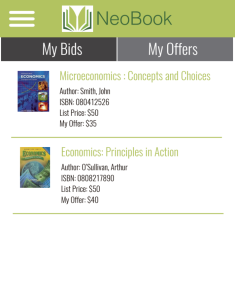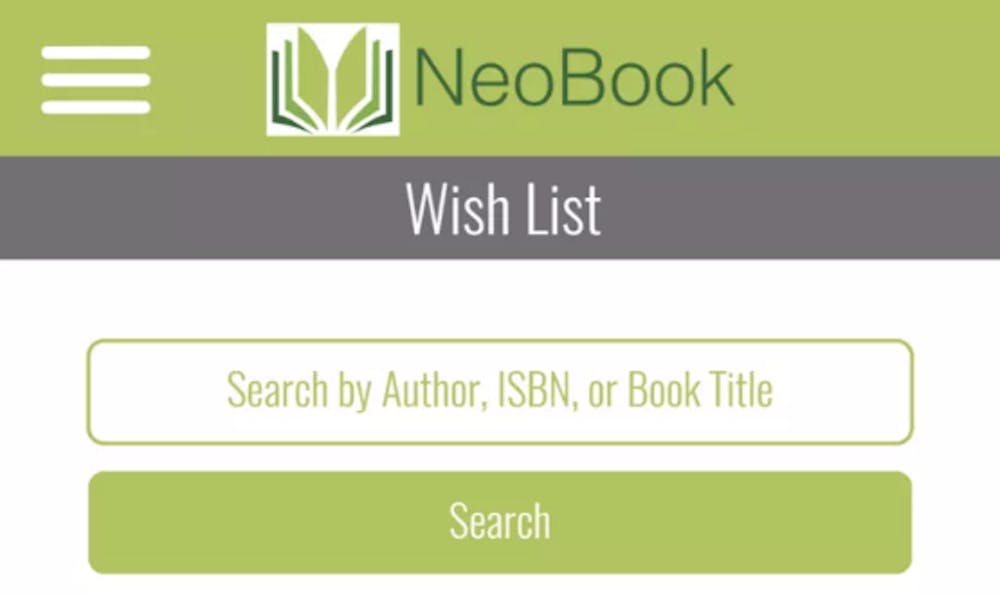By Colleen Murphy
Editor-in-Chief
Sophomore Neo Zambas said he spent $900 on textbooks for four classes this semester. Two semesters ago, the marketing major spent nearly $300 on a single book. He has been unable to find a buyer for the book or sell it back, and so it continues to sit in his house.
Zambas’s situation is a common occurrence on college campuses, and with the end of the semester approaching and the summer semester starting, many students will once again find themselves having to deal with the process of buying and selling textbooks. This has become a lucrative business for textbook publishers. According to an Aug. 6, 2015, article from NBC News, textbook prices have risen 1,041 percent since 1977 — three times the rate of inflation. That same article estimated that college students spent an average of $1,225 on books and supplies last year.
After experiencing the monetary strain of the textbook market first-hand, Zambas knew something needed to be done in order to make textbooks more affordable and to make the process of buying and selling them easier. And so, he partnered with his friend, senior marketing major Agy Serghiou. Together, the two launched the business NeoBook.

“Neo pitched the idea to me back in, I want to say late October, and at first, I thought there was something that already existed — there had to be some sort of mobile app platform that connects students so they can buy and sell textbooks from each other,” Serghiou said. “And after doing research of how much of a problem textbook prices are and doing research on potential competitors — after we saw there were no major mobile app platforms that solved such a big and evident problem — we said, ‘Let’s go for it.’”
As soon as the Neobook app becomes available, the business partners hope to launch it on all major app markets. Students will be able to download the app for free and then plug their school’s name, as well as their course list, into the app. This creates a book wish list for each app user. As soon as a seller on campus, or within a five-mile radius, lists your needed books on the NeoFeed — where all for-sale textbooks can be viewed — you will receive a push notification on your phone, according to Serghiou.
If the buyer is interested in purchasing the book, the student can either buy it for the price the seller originally requested or they can make another offer. Once the buyer and seller agree to a dollar amount, they are given chat box access within the app and are able to discuss a time and place to meet and exchange the book, Serghiou said. The buyer and seller have to confirm with NeoBook that the exchange was completed, and the buyer then has the opportunity to rate the seller out of five stars.
All monetary transactions are completed within the app. This way, students do not have to carry cash with them when meeting with the seller and NeoBook has greater control over where the money goes in case a reimbursement is needed, Serghiou said.
Additionally, all items with an ISBN, including test preparation books, can be bought and sold on NeoBook. A seller simply needs to take a picture of the ISBN to have the book’s information logged in the app, Zambas said.
“I think the beauty of our app is… before, (students) would be sitting on worthless textbooks, so now the app creates value for them because it connects them to potential buyers,” Serghiou said. “They are able to sell back the books that they originally bought for around... probably the same price, buy the books again, hopefully for a low price, and continuing the process all the way up until they’re a senior. They can, in a perfect world, spend virtually nothing on textbooks.

“Our mission is to aid the necessary evil of buying and selling back textbooks… By connecting students so they can buy and sell with each other, they can just reduce their cost immensely,” Serghiou said. “It’s getting to a point where students are just opting out of buying a textbook entirely. They’re willing to risk not performing up to par in the class to save money, and that’s a shame. That shouldn’t be how a college student should feel. They should have an affordable textbook for them so they can optimize their performance in the class.”
According to the same NBC News article, 65 percent of college students have decided not to buy a textbook because of its high price. NeoBook hopes to be the tool that keeps the process of buying and selling textbooks affordable so that students can make the most of their learning experience.
“We’re solving a problem, an evident problem,” Serghiou said.
Zambas and Serghiou plan to launch their business, which is registered as an LLC with the state, not only at the College, but also at 10 other four-year schools — including Rutgers and Pennsylvania State universities — and about 15 community colleges.
When this app will become available is dependent on when NeoBook can garner the right amount of start-up capital. On Wednesday, May 25, Zambas and Serghiou are meeting with five investors, who they hope will get them the money needed to actually launch the NeoBook application. If they are successful with the investors, they hope to have their business available for students by Spring 2017, according to Zambas.
While NeoBook does have competition with other textbook buying and selling companies, such as Amazon, Zambas is confident that the convenience of the app — students can buy and retrieve the textbook from the seller in the same day without any shipping and handling fees — will set the pair’s business apart from the rest.
Zambas also pointed out that while students on campus are already attempting to buy and sell textbooks through Facebook, students can’t search for the book they need in Facebook groups like they can on NeoBook.
“We actually want to solve the problem,” Zambas said. “Believe me, I always tell Agy that I don’t care about the money. I’ll care about the money in the future. First, worry about making an app that’s useful for students, and then benefits will come after. NeoBook has been... my priority since we started… It’s important to me.”
Serghiou shares the same passion for the business, saying that each day he wakes up, NeoBook is the first thing that comes to mind, and that the venture has given him “so much happiness and excitement.”
The two entered this year’s Mayo Business Plan Competition and reached the semi-finals. Since then, they’ve made changes to improve their business, including hiring alumna Taylor Huizenga (’15) as their graphic designer.
And while they say they have faced “a lot of hardship while starting” NeoBook, their Greek heritage — both men’s families are from Cyprus — has definitely given them the spirit to continue on.
“A lot of people have doubted us, but I guess it’s really just pushing through the adversity — I don’t know. If you’re Greek, it’s kind of just something you’re born with, for sure,” Serghiou said.
Serghiou also said that he hopes NeoBook can inspire others to become entrepreneurs.
“I want to show students if they have an idea that solves a problem… there’s no reason they shouldn’t go and pursue it… We’re so proud that we’ve taken our idea this far,” Serghiou said.







